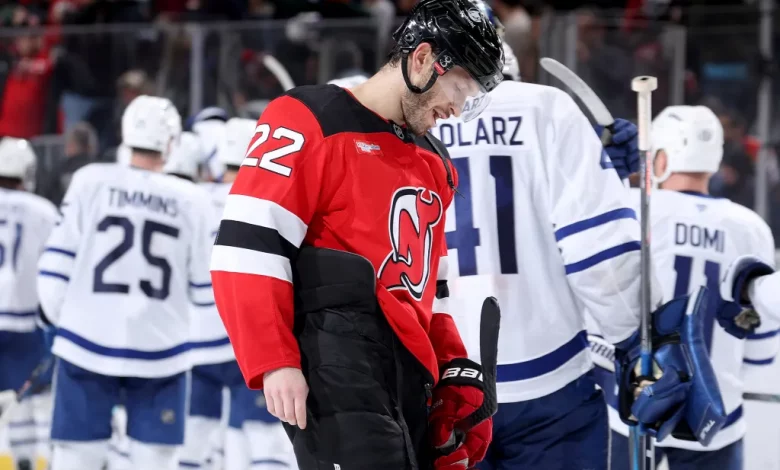It’s time for the NHL to end league’s nonsensical participation trophy era

The National Hockey League (NHL) has always been one of the most prestigious and competitive leagues in the world, featuring the best hockey players from across the globe. The sport itself has been built on principles of hard work, determination, and a commitment to excellence. However, in recent years, there has been a growing sentiment that the NHL is slipping into an era where participation and mediocrity are being rewarded at the expense of true achievement. It’s a trend that can be seen across various aspects of the league—from the playoff format to individual awards—and it’s time for the NHL to reevaluate and put an end to this “participation trophy” mentality.
The notion of rewarding participation instead of true achievement has permeated sports culture for years, but in the NHL, it is beginning to erode the integrity of the competition. Rather than rewarding excellence on the ice, certain changes to the league’s structure and policies have introduced the idea that simply being part of the league or making an effort is enough to be recognized. In a league built on competitive balance, history, and tradition, it’s time to reconsider whether this trend is really in the best interests of the sport.
The Playoff Format: A Flawed System
One of the most significant changes that has contributed to the “participation trophy” mentality is the current playoff format in the NHL. For much of its history, the Stanley Cup Playoffs were a simple and straightforward race for the top eight teams in each conference. The top teams earned their way into the postseason, and there was no question about who had earned the right to compete for the league’s most coveted prize.
However, in 2013, the NHL introduced a significant change to the playoff format, one that was designed to increase the number of teams that made it to the postseason. The new system allowed for 16 teams to qualify for the playoffs, but the catch was that it introduced a divisional structure where the top three teams from each division earned an automatic playoff spot, while two wildcard teams filled in the remaining spots. While this system initially seemed like a way to ensure more teams had a shot at the postseason, it has had unintended consequences that are watering down the value of qualifying for the playoffs in the first place.
Under the current system, mediocre teams that finish with an underwhelming record can still make the playoffs simply by finishing in the top three of a weak division or by benefiting from the wildcard spots. This is an issue because it rewards teams that may not have put together a successful season but still earn a spot in the postseason. For example, in recent years, teams with losing records or records barely over .500 have qualified for the playoffs simply because their division was weak or they got lucky with the wildcard.
The NHL playoff format is not doing the league any favors by rewarding mediocrity. Teams with losing records shouldn’t be given an automatic pass into the postseason. The current system devalues the playoff race, making it feel like “almost every team” is a playoff contender, which is simply not true. In contrast, many of the teams that have worked hard all season to finish in the top tier of their conference are then faced with a scenario where their playoff position could be challenged by a team that finished with a much weaker record.
By adjusting the format to better reflect merit and effort, the league would send a message that earning a playoff spot isn’t just about being in the right place at the right time. It’s about building a strong, competitive team that deserves to compete for the Stanley Cup based on their regular-season performance.
The “Participation Trophy” Culture in Individual Awards
Another issue with the “participation trophy” mentality in the NHL is the growing trend of rewarding individual players for just showing up. While it’s important to recognize the efforts of players who contribute to their teams in various ways, the league has become too willing to hand out awards to players simply for putting in the work, without a real consideration for whether they’ve truly earned it.
Take, for example, the NHL All-Star Game. While it’s meant to be a celebration of the league’s best players, the criteria for selecting participants have become somewhat diluted over time. A player doesn’t necessarily need to be among the elite in the league to make the All-Star roster. Instead, they might get a spot simply because they’ve had a hot start to the season or are considered a fan favorite. This approach has caused many to question whether the All-Star Game truly reflects the best of the best or if it has just turned into another popularity contest.
Moreover, many individual awards in the NHL are becoming increasingly hard to take seriously because they often seem to go to players who have had solid, but not exceptional, seasons. The Hart Trophy, awarded to the league’s Most Valuable Player, used to be a clear-cut honor that went to a player who had elevated their team to greatness. Now, it’s become a more ambiguous award, with players who are good but not great often being considered. In a league full of world-class talent, giving out awards for mere participation rather than true excellence sets a troubling precedent.
While every player deserves recognition for their effort, it’s important for the league to differentiate between a player who is truly exceptional and one who is just along for the ride. By emphasizing excellence and achievement rather than mediocrity, the NHL can ensure that the awards remain meaningful and that players are motivated to raise their game to the highest level.
The Danger of Undermining Competitive Integrity
One of the greatest risks of rewarding mediocrity is that it undermines the very principles that make the NHL such a compelling league. The best players and the best teams should be celebrated, and the competition for both individual and team honors should be fierce. When the NHL starts handing out rewards to teams or players who haven’t truly earned them, it diminishes the sense of achievement for those who have put in the work to reach the highest level of performance.
Additionally, the “participation trophy” mentality dilutes the competitive spirit of the game. Hockey, in particular, is a sport that thrives on passion, intensity, and effort. The NHL should be a league where only the best are rewarded and where making it to the playoffs or winning an individual honor is a hard-earned achievement. By continuing to reward mediocrity, the league risks losing the respect and admiration of both players and fans, as the competitive edge of the sport erodes.
Moving Forward: Restoring Integrity in the NHL
So, what can be done to restore the integrity of the NHL and put an end to the participation trophy era? There are a few changes that could go a long way in fixing the issue.
- Reevaluate the Playoff Format: The NHL should consider adjusting the current playoff format to ensure that only the truly deserving teams make it into the postseason. This means eliminating the automatic playoff spots for divisional finishers who don’t deserve it based on their overall performance. A merit-based system where only the best teams make the playoffs would restore the prestige of reaching the postseason and increase the intensity of the regular season.
- Adjust All-Star Selection Criteria: The NHL should make the All-Star Game a true showcase of the league’s best players. While fan voting is important, the selection process should prioritize performance over popularity. Players who have been exceptional throughout the season should be the ones rewarded with All-Star honors, ensuring that the game is a true reflection of the league’s top talent.
- Reward True Excellence: The NHL should continue to recognize and reward true excellence, whether it’s through individual awards or team accomplishments. Players who excel in every aspect of the game—whether it’s scoring, defense, or leadership—should be the ones to win the league’s highest honors. Giving awards for effort, rather than results, only diminishes the value of these accolades.









